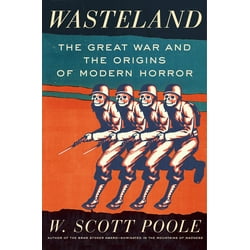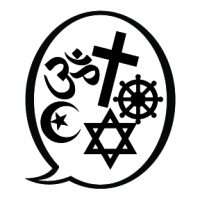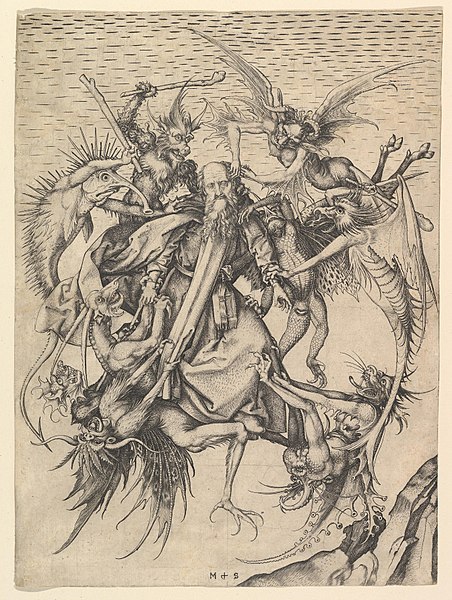 Scott Poole is one of the more interesting writers on horror today, and he has been interviewed here previously on his book In the Mountains of Madness, Satan in America, and Monsters in America. We are privileged to have him back to discuss his new book Wasteland: The Great War and The Origins of Modern Horror (Counterpoint 2018).
Scott Poole is one of the more interesting writers on horror today, and he has been interviewed here previously on his book In the Mountains of Madness, Satan in America, and Monsters in America. We are privileged to have him back to discuss his new book Wasteland: The Great War and The Origins of Modern Horror (Counterpoint 2018).
TheoFantastique: Scott, thanks for visiting TheoFantastique once again to discuss your great work. Welcome back! Let’s start with a couple of basic and introductory questions before getting to some specifics about your new book. Can you discuss how you came to develop a personal passion for horror, and how you connected this to your academic life as a historian?
Scott Poole: Thank you for having me back. The origin of my own passion for horror is decidedly un-academic, despite teaching classes in history and horror and now having written five books on the subject. I am a fan and have been since I was 7 or 8. It was the 70s and early 80s but I had the chance to see some of the great, and not so great, horror films of the 30s, 40s, and 50s on my local TV stations Shock Theatre. I of course collected current and back issues of Famous Monsters and read Fangoria. As a historian trained in American history, I think it was natural for me to seek out connections between the literal horrors of our past and the way that they intertwine in popular entertainment.
TheoFantastique: How do you see history bringing an important dimension to our understanding of horror, and why might this be of interest to general horror fans and not merely those working in the academy?
Scott Poole: Historians never simply record the past. We are a bit more like necromancers who try to bring it back to unnatural life and the terrible things we resuscitate also often bring dire warnings for the present. Horror, whether in film or fiction, has often been a way that the dark sides of history have been tucked away. I think horror fans are at least as interested, maybe more interested, in the larger meaning of the genre they love than academics…in fact most of my books are not written for academics but for students and the general reader.
TheoFantastique: As a launching point for a discussion of your book, can you provide a summary of your main thesis?
Scott Poole: Wasteland tells a series of stories of directors, writers, and artists, most of whom experienced the horror of the trenches, and returned home to create what we know as modern horror culture on screen and page and canvas. I hope that by telling these often baleful stories, readers will see how the Monsters of the 20s and 30s are still with us. The idea that the last century of conflict emerged from the Great War certainly plays a role in the book, a kind of tolling bell in the background of these stories from early in the century.
TheoFantastique: A handful of others, such as David Skal, have sketched the impact of World War I on modern horror. How is your treatment similar yet also very different in its exploration?
Scott Poole: David J. Skal is really the dean of American horror history and there really is not a book I’ve written that is not heavily influenced by him. I think my account differs in that I am less inclined to psychological explanations than his discussion of the same period. I also would say that I took some breadcrumbs he drops here and there in his extraordinary book The Monster Show and found even more evidence that what we think of as modern horror came from the Great War. I was delighted he wrote a kind endorsement for the book.
I also have to mention Christopher Bram’s novel Gods and Monsters. Although a fictional account of the last days of James Whale, the director of Frankenstein, the Bride of Frankenstein and other classic Universal horror pictures, Bram brings some extraordinary insights into both horror film and the Great War. I’d be very happy if readers picked up both Bram and Skal’s work along with Wasteland and read them as companion pieces.
TheoFantastique: What do you see as the thread that weaves its way through the years, connecting the experiences from the Great War to expressions of horror such as the German silent films to Universal Studios, and then how this was carried through in Universal’s ongoing influence in horror?
Scott Poole: I hope readers will be as stunned as I am about the number of connections between European films produced after the Great War, the classic Monsters we love from Universal Studios, and many of our present concerns. There are very direct connections such as Paul Leni leaving Germany to create the first great haunted house picture in The Cat and the Canary (1927) and an exercise in body horror called The Man Who Laughs (1928). The latter film heavily influenced James Whale and he watched it and The Cabinet of Dr. Caligari over and over again while working on Frankenstein.
In a broader sense, the Great War created mountains of corpses and millions of scarred and disfigured soldiers and civilians. This confrontation with the dead body and the fear that the dead body is simply an empty husk, becomes a theme we see from Nosferatu through Frankenstein and then reappearing in the modern slasher film. I also make the point in the book that the French film J’accuse (1919 and remade in 1938) became the first cinematic use of an “army of the undead,” an idea that of course Romero fully developed when he created the first zombie film.
TheoFantastique: It’s important not only to observe aspects of history, but also to learn from it. What lessons does the Great War’s influence in the origins of modern horror have for us today so many years removed from those awful events?
Scott Poole: The book deals with the rise of fascism, and it’s relation to the imagery of horror. The lure of fascism, what Walter Benjamin described as a political art of darkness that “promises the people nothing except the chance to express themselves” should have died forever after 1945. But we see it today in Victor Orban’s Hungary, Bolsanaro’s Brazil, and Trump’s America. I hope that readers come away with the sense that using the term fascism has specific historical meaning…it’s not a political insult. Horror fans will be interested to learn that a kind of unreflective horror played a role in the fascist aesthetic in Italy and Germany, leaders and regimes that sought to darkly frighten by, as China Míeville puts it, “enmonster” foreigners, immigrants, and the Jewish people. But they will also see that directors like Fritz Lang used horror to warn, in films like M (the first serial killer picture)…and he had to flee Germany because of this.
TheoFantastique: Why do you think World War I had such a dramatic influence beyond other wars in horror? Why the Great War over World War II, the Korean Conflict, Vietnam, and the so-called “War on Terror?” And do you foresee more recent conflicts having a greater influence on horror moving forward?
Scott Poole: One point I make in the book is that we cannot understand any of the conflicts you mention without understanding the Great War. There’s a sense in which the Great War never ended and we still live in its morbid half light. The uncertain “peace” that came out of the Paris peace conference created the modern middle east as we know it, placing much of it under the colonial control of France and Britain and turning it into the cauldron of conflict as we know it today.
That said, I’m very interested in how postcolonial conflicts like the Vietnam War rattled the United States and helped transform the horror tradition in the work of Romero, Carpenter, Hooper, and Craven. We have already seen the War on Terror playing a direct role in films like Romero’s Land of the Dead and the general confusion about war aims appearing everywhere from Zach Snyder’s remake of Dawn of the Dead to the peculiarly apolitical Walking Dead series. It’s too soon to tell but I strongly suspect the recent wave of films dealing with digital horror and social media will continue. Cyberwarfare, in which bots and fake accounts, play havoc with democracy are very much a part of the terror of online life.
But, again, we are watching, to borrow Walter Benjamin’s image, “wreckage pile upon wreckage” in the world’s history. The trenches and the dead haunt us still and pose questions to us, just as they did in the horror films that appeared soon after 1918.
TheoFantastique: Scott, thanks for taking time to answer some questions and discuss your book. Your continued exploration of the depths and significance of horror in history is much appreciated.
 Edited by Juli Gittinger and Shayna Sheinfeld
Edited by Juli Gittinger and Shayna Sheinfeld
 Explorations of the relationship between religion and horror are fairly well established. However, this is not the case for theology and horror. Many times explorations of theology and horror involve simplistic readings in which theological concepts or doctrines are spotted within horror narratives and noted as points of connection. While this approach has its place, great possibilities exist for going deeper and wider in the exploration of horror and theology. Horror can be a subversive and edgy genre, and this doesn’t often connect well with conservative assumptions which underlie much of the theological enterprise. Theology is often neat and sanitized; horror is messy and dirty.
Explorations of the relationship between religion and horror are fairly well established. However, this is not the case for theology and horror. Many times explorations of theology and horror involve simplistic readings in which theological concepts or doctrines are spotted within horror narratives and noted as points of connection. While this approach has its place, great possibilities exist for going deeper and wider in the exploration of horror and theology. Horror can be a subversive and edgy genre, and this doesn’t often connect well with conservative assumptions which underlie much of the theological enterprise. Theology is often neat and sanitized; horror is messy and dirty. Scott Poole is one of the more interesting writers on horror today, and he has been interviewed here previously on his book
Scott Poole is one of the more interesting writers on horror today, and he has been interviewed here previously on his book  I’ve heard this historical argument made before in horror film documentaries, and in the work of David Skal. So it’s a treat to see Scott Poole, a friend of TheoFantastique (see
I’ve heard this historical argument made before in horror film documentaries, and in the work of David Skal. So it’s a treat to see Scott Poole, a friend of TheoFantastique (see  The Supernatural in Contemporary Society Conference was held in August of 2018. The conference description:
The Supernatural in Contemporary Society Conference was held in August of 2018. The conference description:
 Of God and Monsters
Of God and Monsters S. Brent Plate has an interesting article at The Revealer titled
S. Brent Plate has an interesting article at The Revealer titled 



